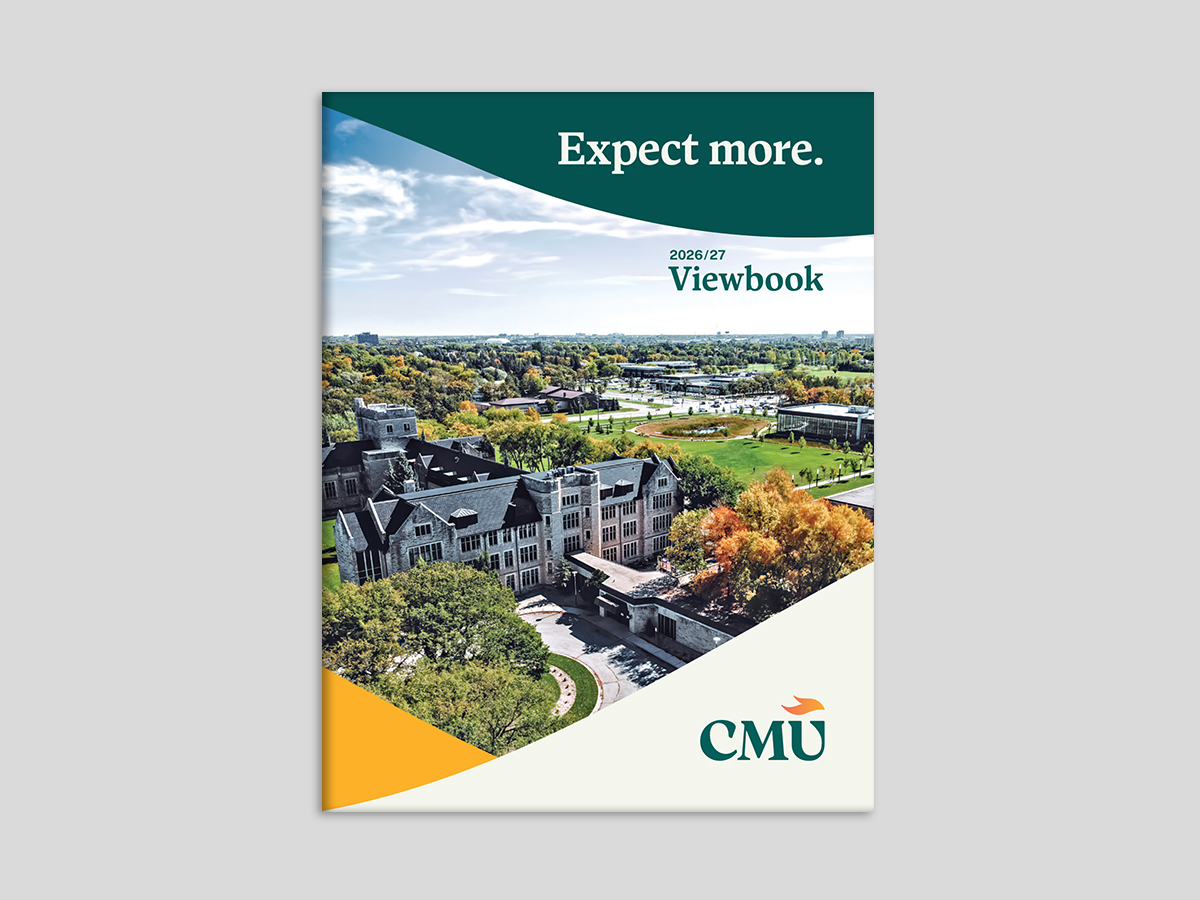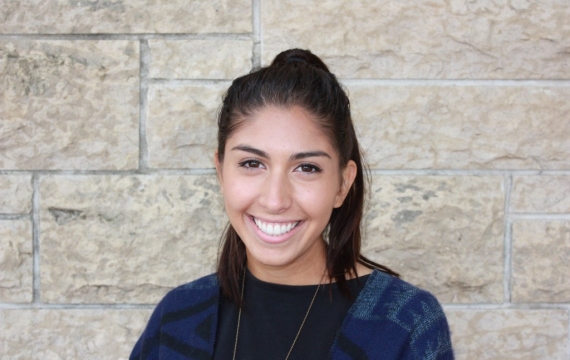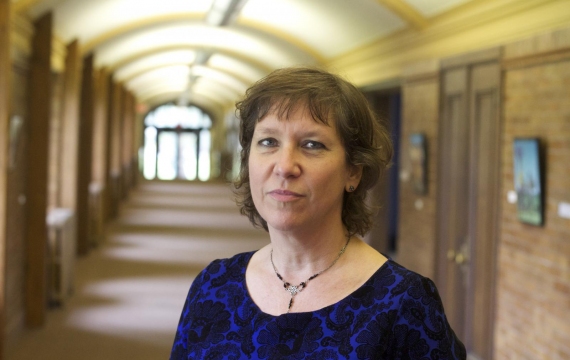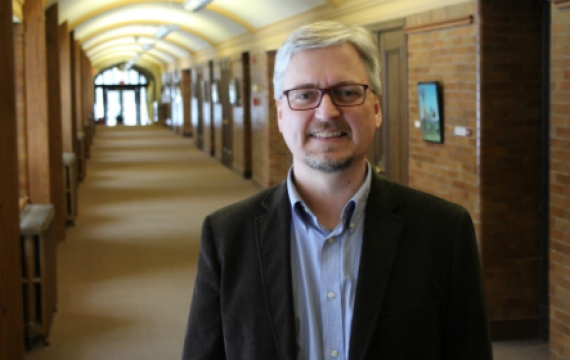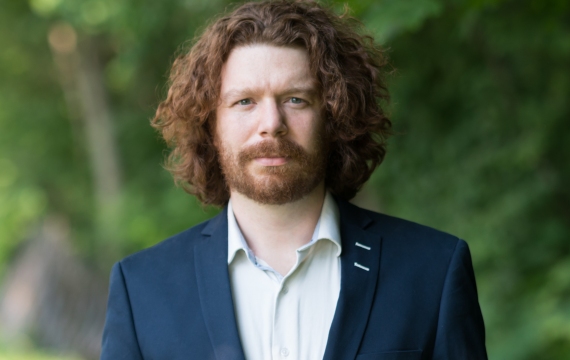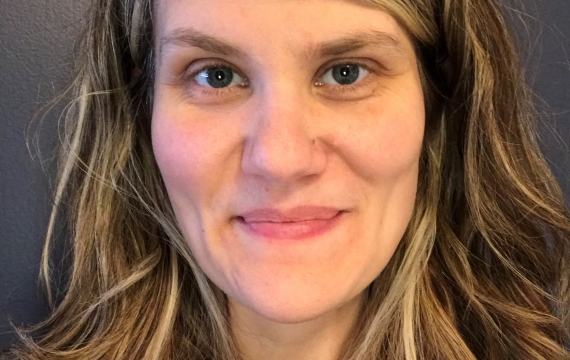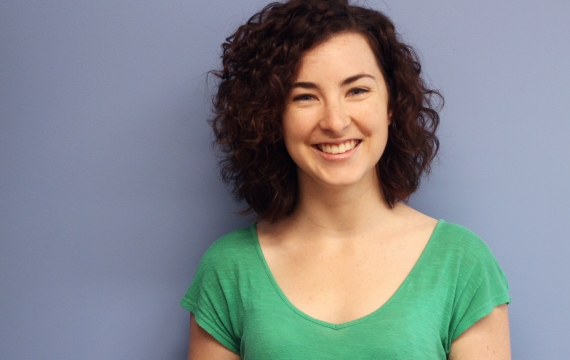
Stories shape the world. And the way we see it.
Studying English at CMU invites you to slow down and notice more than just the story; how it is told, how a sentence moves, how words help us understand people we'll never meet. In this program, you'll read deeply, write honestly, and think critically alongside classmates and professors who believe literature matters.
You'll graduate as someone who reads attentively, writes with purpose, and engages the world with empathy and care.
You'll explore fiction, poetry, drama, and non-fiction from different times, places and perspectives. And you'll learn that studying English isn't about having the right answer, it's about asking good questions and paying close attention.
Here, you'll grow as a reader and a writer, but also as a person: someone who notices beauty, values empathy, and sees language as a way to connect with others.
Why Study English at CMU?
“From the people I've attended class with, to the people I've learned from, to the work I've done, CMU has fulfilled every romanticized ideal I thought university learning would be like—and I didn't even have to leave Winnipeg for it.”
– Emma Williamson, Bachelor of Arts student, majoring in English

What Makes English at CMU Different?
A culture of care and curiosity.
At CMU, you're more than a number. Professors take time to get to know you, your ideas, your writing, your questions, and support your growth every step of the way.
A learning environment where your voice matters.
Classes are small, interactive, and full of discussion. You won't just sit and listen, you'll ask questions, share ideas, and learn from the perspectives of others. Professors care about what you think.
Literature that connects across subjects.
Your readings will often cross into philosophy, theology, film, or cultural studies, because stories don't live in silos. If you're someone who sees everything as connected, you'll feel at home here.
Real experience with books and publishing.
Learn how to set type on a traditional printing press, work with CMU Press on manuscript editing and book design, or get involved in campus publications like Soul in Paraphrase and The Doxa.
A place where your voice matters.
Whether you're participating in a classroom discussion or editing a manuscript, you'll be invited to contribute. You don't have to have it all figured out; you just have to be willing to engage.
“He can use the plainest of utterances and make them carry such depth—very inviting, but also very profound.”
– Dr. Paul Dyck, Professor of English
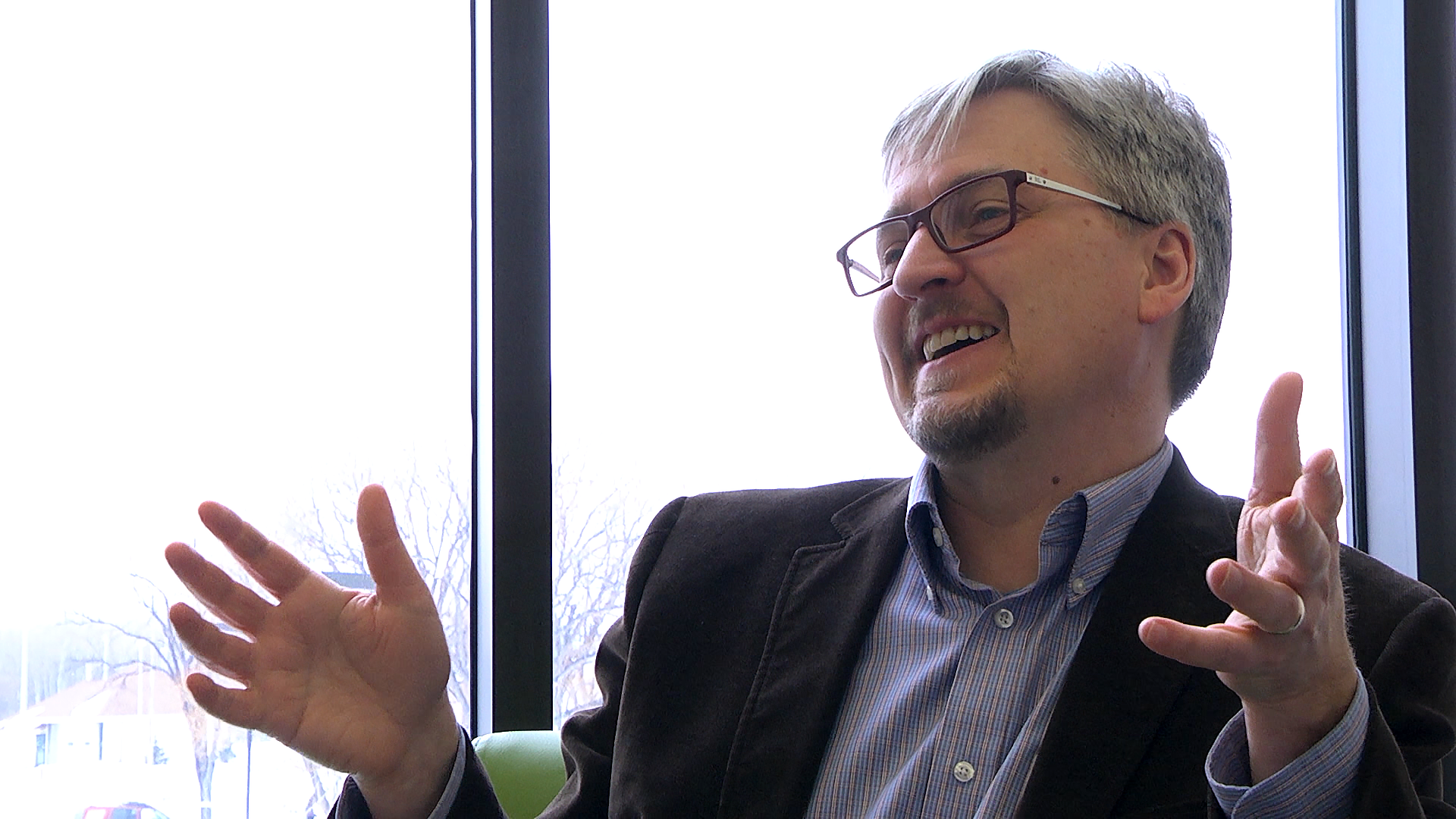
Careers in English
What can you do with an English degree from CMU? A lot. If you care about people, stories, communication, or culture, English gives you the tools that open doors in almost any field.
Tell stories that make a difference.
Write for newspapers, magazines, not-for-profits, or online publications. Work in journalism, podcasting, or creative writing.
Teach, guide, and mentor others.
Become a teacher, librarian, academic advisor, or writing coach—locally or internationally. Many grads pursue education degrees and teach in schools across Canada and beyond.
Shape policy, systems, and culture.
In public service, law, or advocacy, English grads help shape ideas and policies through research, communication, and analysis.
Create meaningful communications.
Use your writing and storytelling skills to shape content that informs, inspires, or moves people to action. Whether it's marketing, public relations, social media, or content creation, your ability to write with clarity and nuance is a major asset in any communications-focused role.
Support communities with care and creativity.
Many English grads work in not-for-profits, spiritual care, or social services, where strong communication, empathy, and critical thinking are essential.
Pursue further study.
Graduates go on to study English literature, creative writing, education, theology, law, journalism, library science, and more.
Note: Some careers may require additional certifications or graduate studies.
“CMU encouraged me to think critically and with a broad lens—and to be accepting of anyone and everyone. That has shaped the way I teach and care for students every day.”
– Heather Schellenberg (CMU ’09), Guidance and Support Teacher, Winnipeg School Division
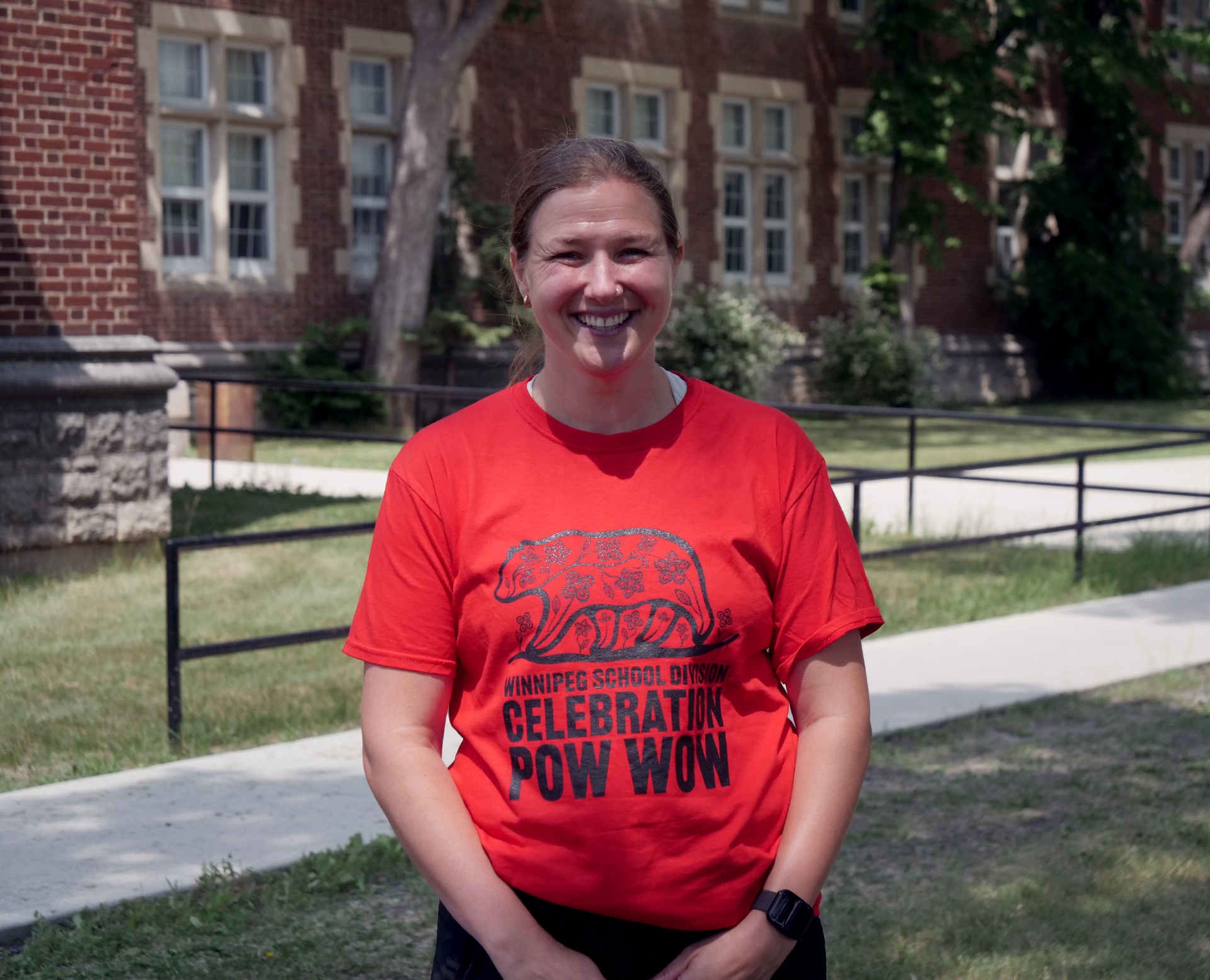
Where English Program Grads Go
Work-Integrated Learning (WIL)
Put your love of language to work while you’re still a student. In the English program, you’ll have opportunities to connect classroom learning with hands-on experience:
Whether you're refining a manuscript, copy editing for a publication, or helping someone craft a better sentence, you'll leave CMU with experience that matters.
Explore More at CMU

As CMU is a member of Universities Canada, students can be assured that the program will meet the highest regulatory requirements for work in a range of contexts across Canada.
















